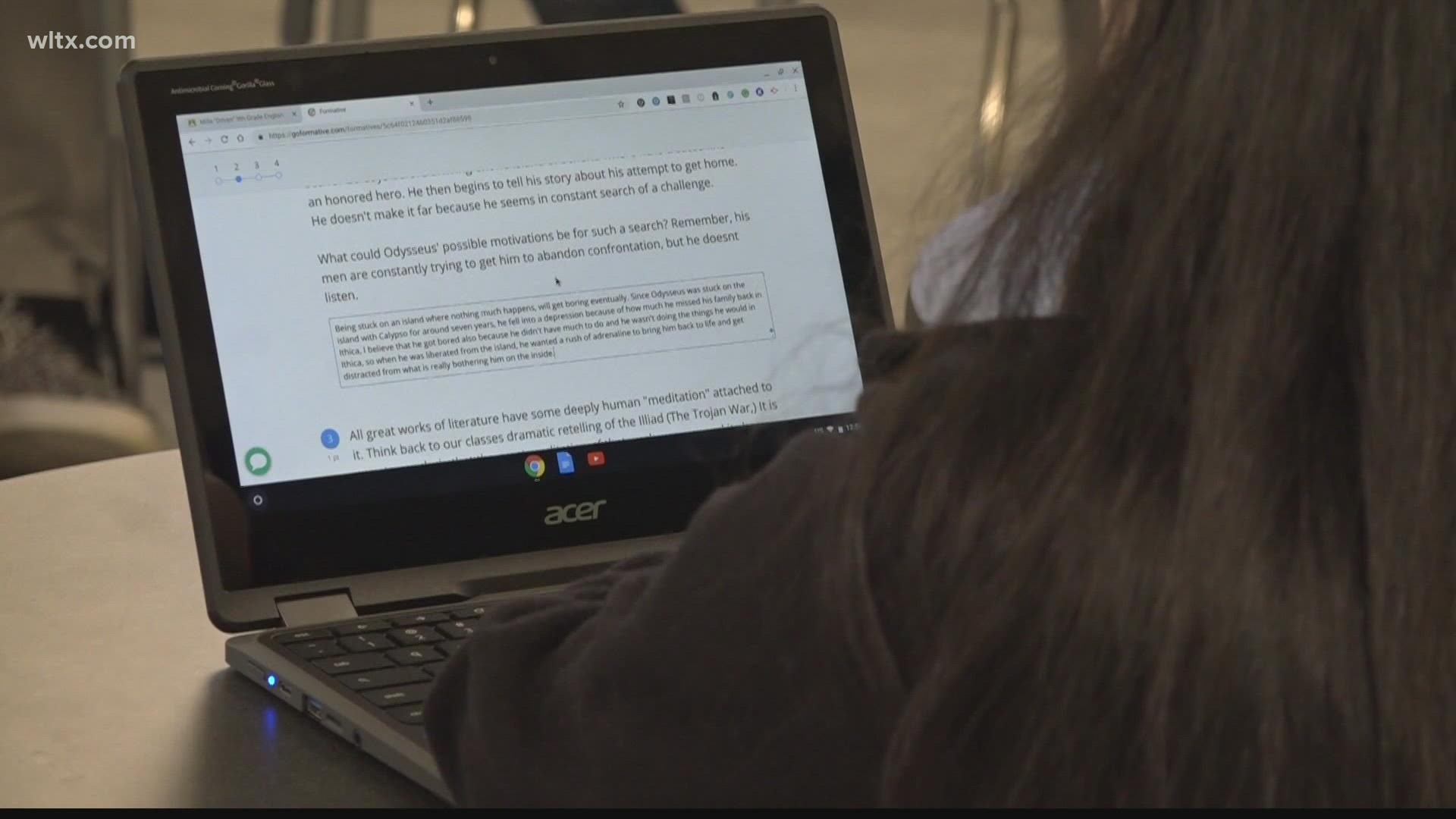COLUMBIA, S.C. — The South Carolina School Report Cards have now been released for all districts. As expected, many did not meet academic expectations due to COVID-19.
Schools have been fighting to make up lost time in learning due to the pandemic. Father of four Cody Smith said that his kids struggled with virtual learning last year.
“My youngest especially, I think that it was hardest for her, just to her personality and also where she is in her education being in third grade last year. It was a struggle for her to be at home and to continue to be educated that way,” Smith explained in an interview.
Smith's Richland One family did its best to stay on track:
“We were able to get tutors to help us kind of stay on task where we were, we're fortunate that we could do that.”
However, like many, they chose to opt out of end-of-year exams last spring.
South Carolina bases school report card ratings off those exams. That’s why the newly released data comes with a disclaimer at the top of the website:
“The results displayed within this report card should not be compared to those of other years due to the testing limitations as a result of the pandemic," the website says. "In addition, these results may be incomplete and may not be representative of the make-up of the State, district, or school population.”
In the Midlands, only two districts exceeded the state average in math, reading and writing: Lexington One and Lexington-Richland Five.
All others struggled to meet or exceed grade level expectations. Orangeburg County School District told News19:
“Many families in our district made the decision to opt out of state testing, which yielded low numbers of test takers and scores that may not reflect the content mastery of Orangeburg’s students as a whole. Our Academic Recovery Plan is designed to provide resources, intervention and enrichment to all students based on their individual needs, and we remain committed to supporting our students through the pandemic and beyond to ensure they are well-prepared for success in school and life.”
Richland One was also below the state average in all academic scores but saw an uptick in their graduation rate.
The district's superintendent, Dr. Craig Witherspoon said, “what that tells us is the longer our students are with us, they do better. And we're able to get them to the point of graduation.”
Witherspoon said the report cards give some insight on the pandemic’s effect on learning. He called it "a snapshot in a very difficult time.”
Federal funding was dispersed to schools to address learning loss. Witherspoon said they’ve spent it on enhanced summer programs and Saturday school.
“We've used some of those federal funds to support interventionists at the elementary and middle level that would work with a small group of students that are experiencing difficulty,” explained Witherspoon.
He added that they’re investing in emotional and mental support for students too.

